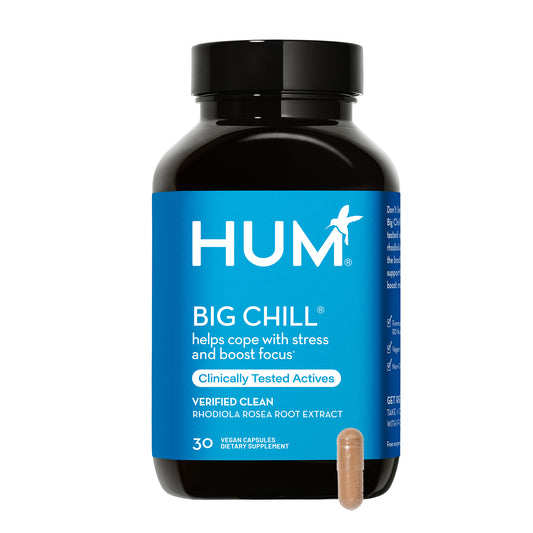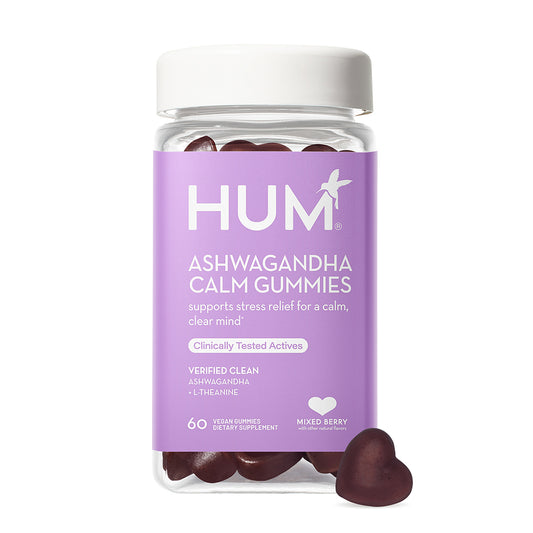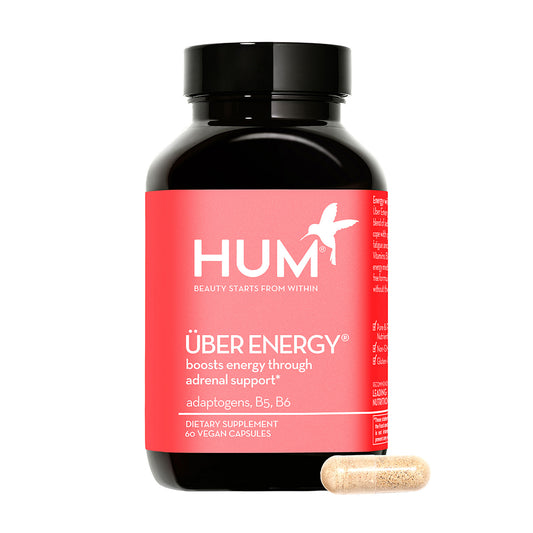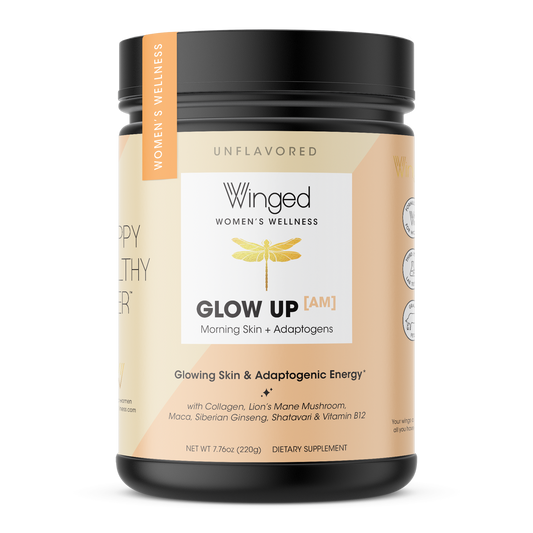What's anxiety?
Anxiety is a common symptom of perimenopause and menopause. Up to 37% of females ages 40-65 reported that they'd experienced anxiety during the menopausal transition.* Anxiety can mean many things. You may suddenly feel scared for no reason. You may also worry a lot and get irritated easily. You body may react too, with symptoms like shortness of breath, a racing heart, and feeling tense.
Irritability is a common symptom of both stress and anxiety and is also normal to experience during menopause. In fact, 25% of females between 40 and 65 say they experience irritability.* It’s defined as a state of excessive, easily-provoked anger, annoyance, and impatience.
There’s a difference between anxiety connected to menopause and people who are diagnosed with an anxiety disorder. Often, the anxiety connected to menopause isn't as intense and doesn’t last as long.
Anxiety can be difficult to quantify, and what feels like anxiety can vary from person to person. People may understand or describe anxiety differently than their doctor. This can make it hard to talk about.
If you have previously been diagnosed with an anxiety disorder, you may not notice a difference during menopause. If you’ve been getting help, you might have medication and coping skills from therapy that can help you deal with any new challenges.
If you experience frequent, severe feelings of anxiety or panic attacks, contact a healthcare professional.
Can menopause cause anxiety?
The relationship between menopause and anxiety is complex. There’s evidence that hormonal changes influence anxiety, but how they influence it is still being researched. Not as many studies have been done on anxiety compared to other menopause symptoms. But we know that anxiety can still greatly affect daily living and quality of life.

How will menopause anxiety affect me?
Anxiety can affect several areas in our lives — from how we respond to stress to how we sleep.
If you’re feeling anxious, you may have a more intense response to stressful situations. When you’re already in an anxious state, your mind and body are “on alert” and are in a fight-or-flight mode. When something stressful happens, it can be hard to stay calm and think clearly. You might not have the energy to solve problems effectively.
In addition, the time of life when we’re going through perimenopause and menopause is often a stressful and challenging time and that can drive feelings of anxiety. There are often a lot of life changes happening. You may have other sources of anxiety including:
- Children leaving home.
- Managing young children at home.
- Taking care of older family members.
- Changes in your relationships.
- Career issues.
Insomnia and sleep disturbances are also a challenge during menopause. And anxiety is closely tied to our sleep. It’s very common to experience a cycle of poor sleep triggering anxiety and anxiety disrupting sleep. There’s also an association for some people with night sweats and nighttime anxiety.

How can I manage anxiety during menopause?
Fortunately, there are several strategies to help manage anxiety and irritability during menopause. Reading this article and learning that anxiety is a menopausal symptom is a great first step! Once you know it’s related to menopause, you might understand why you react to things the way you do. And then you can share this information with your friends.
If you’re taking menopausal hormone therapy (MHT) to help manage other menopausal symptoms, you may notice that it may also help reduce some anxiety symptoms. But it’s not often just prescribed for anxiety symptoms, as there’s been mixed results on whether it’s effective.
Not everyone experiencing anxiety during menopause needs treatment. But if the increase in anxiety is affecting your daily life or if you have any questions or concerns, talk to a doctor. They may recommend anti-anxiety medications and psychotherapy to help treat anxiety. Selective serotonin reuptake inhibitors (SSRIs) are commonly prescribed to treat anxiety and depression. They can also be helpful in managing symptoms of menopause. However, these medications may have side effects such as fatigue, weight gain, and reduced libido — which may make already-existing menopausal symptoms feel worse. Again, be sure to talk to your doctor about what treatments or supplements may be right for you.
Many people find that small lifestyle changes can make a difference in helping them manage their anxiety:
- Practice stress management techniques such as meditation, deep breathing, and yoga. These techniques can help to reduce stress and anxiety and promote a sense of calm and relaxation.
- Get regular exercise. Exercise can help to reduce stress and anxiety.
- Eat well-balanced meals and snacks. A healthy eating plan that focuses on fruits, vegetables, and foods that aren't heavily processed may help reduce anxiety symptoms. Eating less sugar and refined grains may also help.
- Cut down on caffeine, alcohol, and sugary foods. They can make you feel more anxious and irritable.
- Try your best to get plenty of good sleep. Your body needs time to rest and recuperate.
- Take time for yourself. Find a relaxing activity that allows you to focus on yourself. You might try gardening, reading, meditation, mindfulness practices, or yoga.
- Talk with someone. Reach out to trusted family and friends who can support you. If you need more help, don’t hesitate to reach out to a mental health professional.
- Give back. Take time to volunteer and help in your community. Focusing on and connecting with others can help you take a break from stress and anxiety.
*Data from Attitudes & Usage study conducted in August 2021 with 4,578 female participants ages 40-65. Funded by Kenvue.








